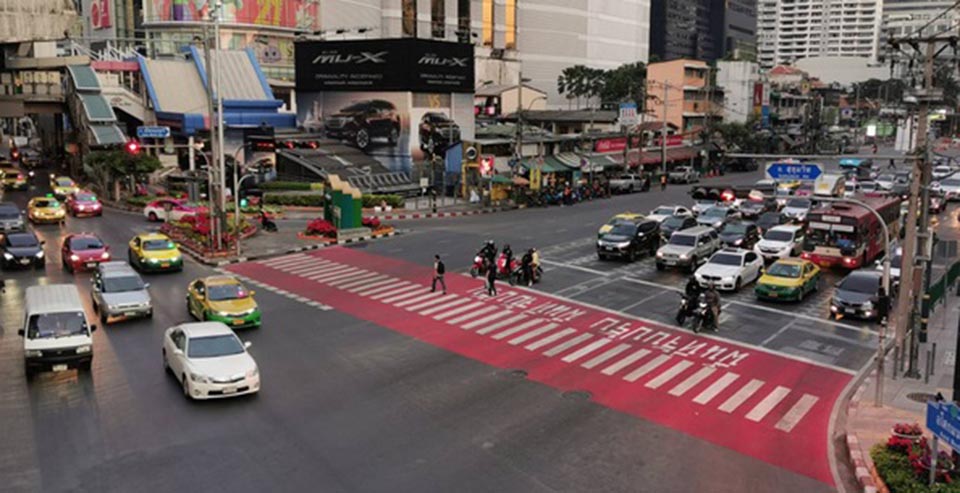
Bangkok has announced plans to implement artificial intelligence (AI) technology for the management of traffic flow on key roads and to tackle congestion. The project is a collaboration between the Bangkok Metropolitan Administration (BMA) and the Office of Transport, Traffic Policy and Planning.
The AI-powered traffic management model aims to enhance efficiency by accurately estimating traffic volume on the Ratchadapisek, Prasertmanukit and Ratchapruek roads. By analyzing potential bottlenecks and devising real-time solutions, the system intends to optimize traffic flow through adaptive adjustments, such as synchronized traffic light timing based on current traffic volume.
Leveraging the existing network of 1,000 CCTV traffic cameras already managed by the BMA, the technology will harness the data collected from these cameras to provide invaluable insights into the traffic situation. Additional cameras will be installed specifically on Ratchadapisek Road to support this undertaking.
While the BMA has deployed approximately 60,000 CCTV cameras throughout the city, primarily for security purposes, they are incompatible with the AI traffic system. Officials noted that integration of the existing camera infrastructure into the new AI model is expected to significantly contribute to the effectiveness of the traffic management system.
Deputy Bangkok Governor Wisanu Subsompon earlier acknowledged the limitations of the traditional traffic light programming in the city, which relies on historical traffic data and primarily focuses on rush hours and weekends. Recognizing that this approach often fails to effectively address real-time traffic conditions, he said the most cost-effective measures available will now be implemented to improve traffic flow within a year. (NNT)






